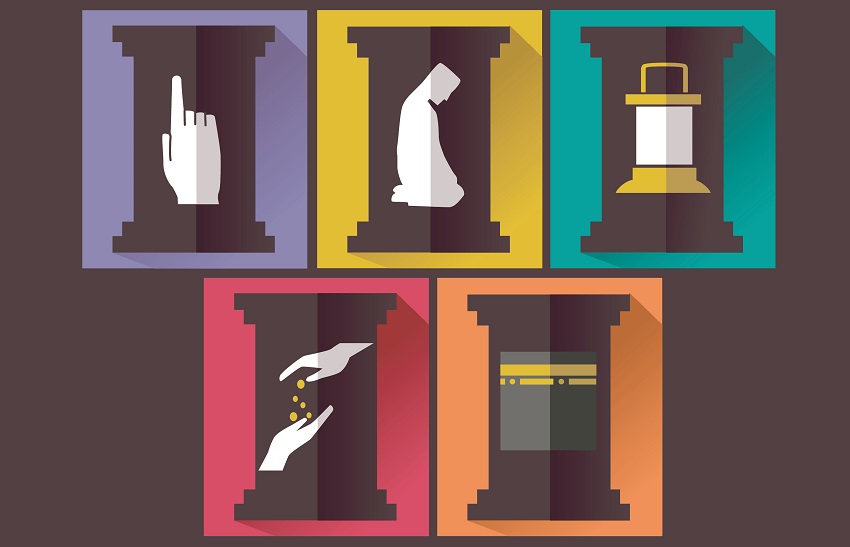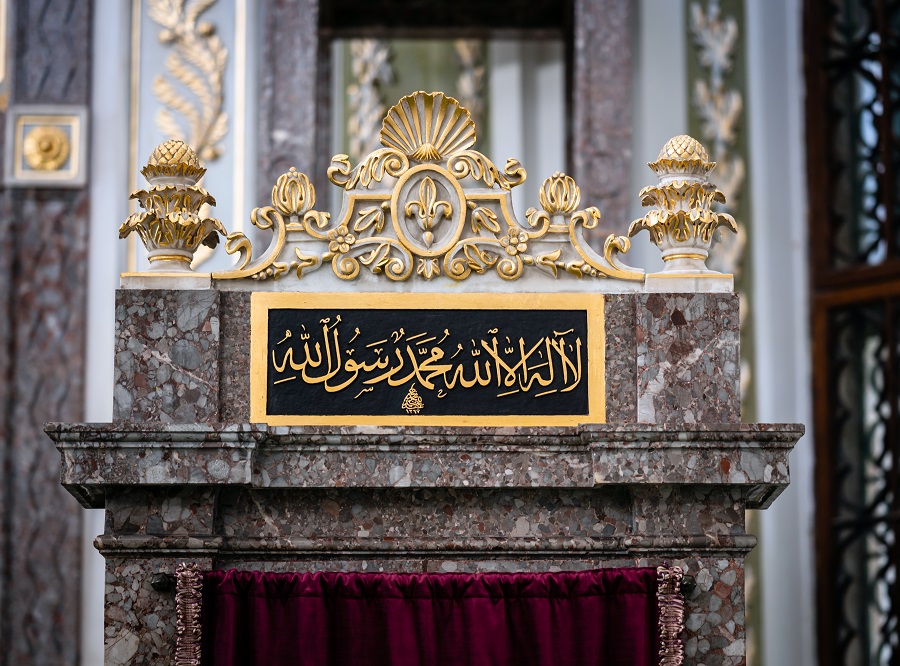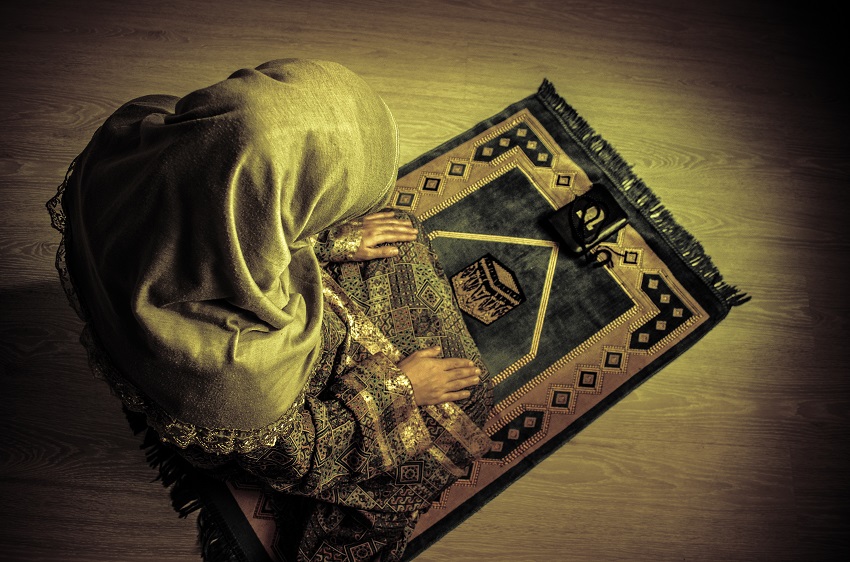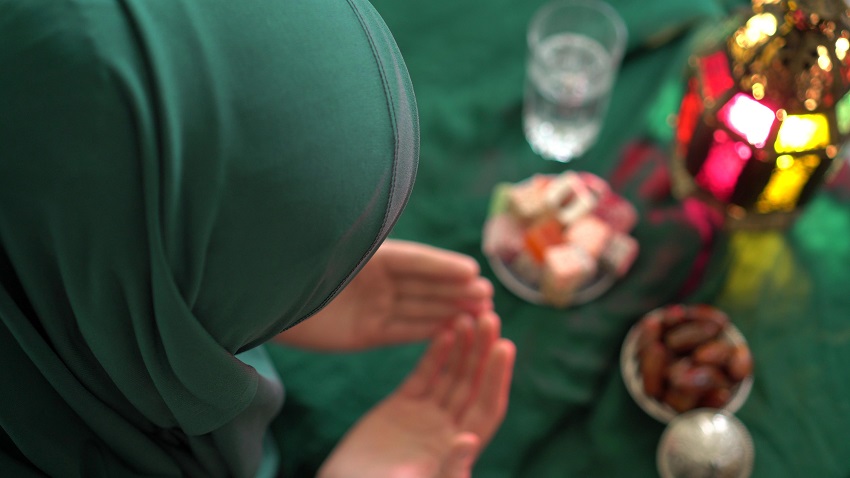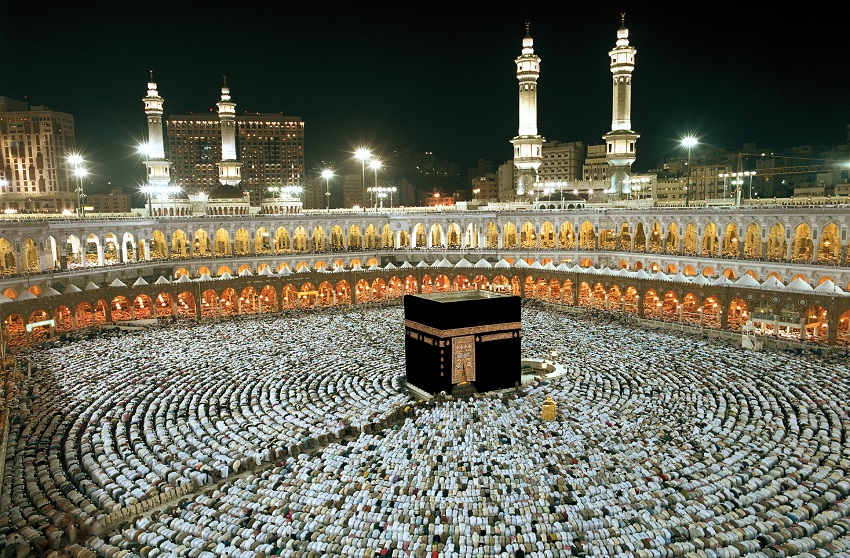The five pillars of Islam are the basic tenets of faith that hold the entire foundation in place. Every follower is obliged to pursue these values and imbibe them. It teaches the way of life and makes it a part of the routine. These practices strengthen the core and unite people in the community. It is said that Muslims are commanded by Allah to chase these values in the form of duties without failing. These pillars are the fundamental Islamic beliefs that remind followers every day of the teachings of Allah and help them to put Him first in every aspect of their lives. It helps to establish a link between Muslims and the supreme power. They follow the example of the Prophet to structure their life, beliefs and devotion.
What are the five pillars of faith in Islam?
The five pillars of faith in order:
- Shahadah – the first pillar of Islam
- Salah – the second pillar of Islam
- Zakat– the third pillar
- Sawm – the fourth pillar
- Hajj – the fifth pillar
Five pillars of Islam: Meaning & Rewards
These five pillars of faith support the key beliefs of the religion and give the followers a sense of identity. They preach Muslims on how one must behave in everyday life. They also guide the believers to overcome challenges in life and forms the elements of Islam. Here’s what each of them entails and offers as reward.
Importance of pillars of Islam
The five pillars of Islam are important for Muslims as they set the way of life for the followers of Islam. The tenets of Islam promote brotherhood and sense of belongingness among the community. They help in solidifying faith and belief in the almighty Allah and the path shown by Him. Let us discuss these five tenets of Islam in detail.
1. Faith (Shahada)
Every Muslim is supposed to believe that there is only one God and His messenger was Prophet Muhammad. The Quran is the holy book of the religion, and every follower must recite its phrases with conviction.
It helps the soul to communicate with Allah and reminds people of the purpose of their lives. It invokes self-respect and makes people humble and modest. Among the five pillars of Islam, faith helps people to surrender themselves to Allah and makes them feel liberated.
2. Prayer (Salat)
It is the ritual of praying to Allah five times a day facing Mecca. A Muslim must perform the ritual after dark, noon, sunset, mid-afternoon and at dawn. It starts with reciting the opening chapter of the Quran. On Friday, men gather at the nearest mosque for the noon-time prayer. It is, however, not a compulsion for women.
Praying purifies the body and heart from the sins of the past. It brings positive energy and consistency to life. It also raises equality, brotherhood and humility among Muslims and offers peace to the soul.
3. Charity (Zakat/ Alms)
This pillar of Islam asks for charity in good faith for the less fortunate. Muslims, who are wealthy or financially stable, donate to community members and organisations for building mosques, schools, hospitals and other institutions that can help the needy in any way. It is a religious duty that brings Allah’s blessings upon people.
Charity helps one to become selfless for a minute and help them to understand the plight of others. It also helps the needy experience solidarity and restores everyone’s faith in humanity. It helps to increase the count of wealth and maintain a balance in society.
4. Fasting (Sawm)
Ninth on the Islamic calendar, the month of Ramadan is the time when healthy and able Muslims must forgo drinks and food during the daylight. It symbolises restoration of gratitude for everything that God has given, including the holy book of the Quran. It helps the followers to share the thirst and hunger of the lesser fortunate and makes them realise their duty to help them.
Fasting helps to develop willpower and teaches the art of patience. It develops obedience for Allah and helps to control desires. It is an opportunity for believers to surrender themselves in the complete devotion of the almighty.
5. Pilgrimage (Hajj)
If a Muslim has sound health and enough bank balance, Hajj is mandatory for that person. It is the pilgrimage to the sacred city of Mecca in Saudi Arabia. Pilgrims circle around Kaaba, a cubical structure in the centre of the Haram Mosque in the city. It is believed to be the house of Ibrahim, built for God. Hajj is carried out on the eighth and twelfth day of the last month in the Islamic calendar.
The pilgrimage is the symbol of unity and equality before Allah. It is also the proclamation of Allah. During the journey of Hajj, people overcome their class and race biases to worship Him. It requires controlling the temper and moving forward with devotion and love for Him.
These fundamental Islamic beliefs are aimed at all ages, genders, and strata of the society. The five pillars of Islam for kids are the same, but they can follow them with lenience. According to popular beliefs, it is not customary for children to pay for charity, but they can offer their services and perform Hajj with their parents. Children are taught from childhood to accept the teachings in their routine to become a better human being in future.
Five Pillars Of Islam FAQs
What is the base of five pillars in Islam?
The five pillars of Islam are the basic tenets of faith that hold the entire foundation in place. Every follower is obliged to pursue these values and imbibe them. It teaches the way of life and makes it a part of the routine. These practices strengthen the core and unite people in the community.
What are the five pillars of faith in Islam?
In Islam, the five pillars of faith are as Salat, Shahada, Swam, Hajj, and Zakat.
What is Salat?
It is the ritual of praying to Allah five times a day facing Makkah. A Muslim must perform the ritual after dark, noon, sunset, mid-afternoon and at dawn. It starts with reciting the opening chapter of the Quran. On Friday, men gather at the nearest mosque for the noon-time prayer. It is, however, not a compulsion for women.
What is Zakat?
This pillar of Islam asks for charity in good faith for the less fortunate. Muslims, who are wealthy or financially stable, donate to community members and organisations for building mosques, schools, hospitals and other institutions that can help the needy in any way. It is a religious duty that brings Allah’s blessings upon people.
What is Shahada?
Every Muslim is supposed to believe that there is only one God and His messenger was Prophet Muhammad. The Quran is the holy book of the religion, and every follower must recite its phrases with conviction.
Why is Zakat a crucial pillar of Islam?
In Islam, it is believed that wealth ultimately belongs to Allah, so giving Zakat helps bring equality amongst people. It is a form of religious duty that showers Allah’s blessings upon the community.
Why is Salah an essential pillar of Islam?
Salah or prayer is the 2nd pillar of Islam. It is the ritual of praying to Allah 5 times every day, facing Makkah. Salah is an essential pillar because it is how Muslims show both their physical and spiritual submission to Allah.
Why is Hajj the most important pillar of Islam?
Hajj is considered to be the most important pillar because it makes Muslims feel the real necessity of life on earth. It is a pilgrimage to Makkah and is the fifth pillar of Islam. It strips away all that relates to societal standards, wealth, and pride. In the Hajj, all individuals are equal in Allah’s eyes.
Why is Sawm an important pillar of Islam?
Sawm is the fourth pillar of Islam, and it is mandatory during Ramadan. Sawm or fasting helps Muslims to develop a sense of self-discipline and allows them to identify with the poor and the needy. Sawm can also be observed anytime over the year as a form of worship.



